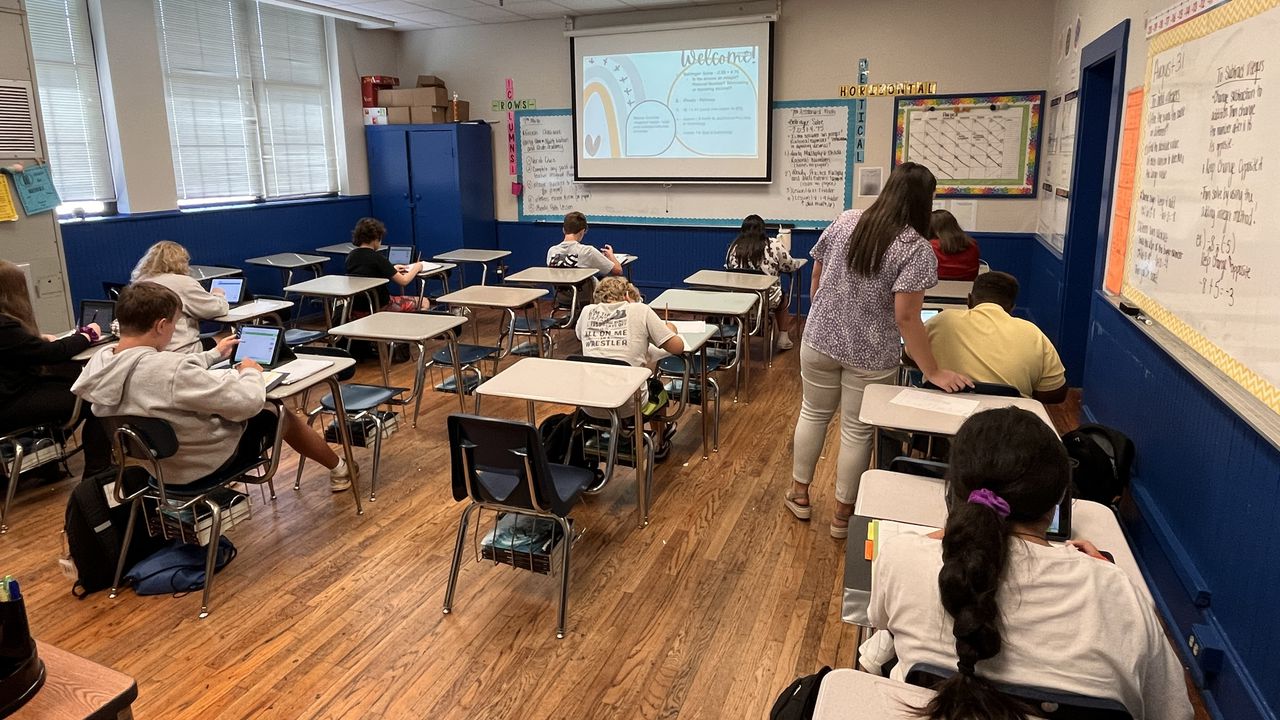Alabama K-12 officials seek $6.2 billion budget for literacy, principals, teachers
Alabama education officials will seek an 11% increase in the state budget for FY25 to continue programs currently supported by pandemic relief aid and to fund new programs lawmakers approved in the 2023 legislative session.
At least $600 million more will be needed to continue funding for early literacy, teacher training programs and student supports in 2024-25, they say.
“These are some of those programs that we’ll have to have legislative support for or we’ll have to cut them back,” State Superintendent Eric Mackey said last week to the state Board of Education.
The current K-12 state education budget is $6 billion, with $5.6 billion of that directly connected to the state board of education. The last of $3 billion in federal pandemic relief money runs out in September 2024. Schools nationwide are reckoning with how to continue funding essential programs using state and local tax money in lieu of that federal support.
In Alabama, one big initiative at risk is the third-grade reading effort, which for three years has relied on pandemic relief aid to pay for summer reading camps, teacher training, additional staff and interventionists.
“It’s what we’ve known is coming for two years,” Deputy State Superintendent Brandon Payne said.
The Alabama Reading Initiative needs $36.3 million more money to keep its effort moving forward, Payne said.
Separately, schools need an additional $25 million for building-based reading coaches in lower elementary schools and $2 million to help struggling readers in fourth grade and beyond. And even that might not be enough, state board members warned after hearing budget discussions.
Payne said schools also need a $24 million increase in funding for the Alabama Numeracy Act, a kindergarten through fifth grade math initiative, bringing the total funding to $64 million. The increase will fund 203 math coaches in local schools, as well as interventionists and regional coaches.
Board member Wayne Reynolds questioned whether Ivey and lawmakers were likely to consider the board’s request given they didn’t fund $500 million of the current year’s request.
Payne said to keep an eye on tax receipts, as tax collections are running above what lawmakers budgeted currently for education. Through Aug. 31, Alabama’s Education Trust Fund collected $9.3 billion – $500 million more than the $8.8 billion lawmakers allocated for the 2023-24 budget year. And that’s with one more month left in the 2023 fiscal year.
Any money the state collects beyond what was budgeted will be allocated by lawmakers in the 2024 legislative session. Lawmakers had a $2.8 billion surplus for the 2022 tax year that they distributed in May, some of which they put into savings.
Mackey told reporters he hopes money the state has been saving will buffer the loss of federal funding. “At the end of this month, we’ll have a couple billion dollars in savings,” Mackey said, “and hopefully that’ll help us not have a funding cliff but have more of a level, easy landing.”
Mackey wants $5.5 billion for school districts and for the Foundation Program, $380 million more than the current year’s $5.1 billion. The bulk of that money would go to increase the number of teachers in grades four through six, where class sizes are the largest, board members said.
And it would increase funding for school buses and transportation costs by $108 million, up to $540 million.
A number of special education related requests were presented, including a $5,000 annual stipend for special education teachers. It will cost an additional $29 million to raise the stipend from $1,000 – new this year – to $5,000, Payne said.
Funding for the state’s preschool program – different from the First Class Pre-K program overseen by the Department of Early Childhood – needs an additional $2.4 million, Payne said, specifically because more young children are being identified with “extreme challenges.”
Other notable requests include:
- Principal mentoring and development programs – a newly-created program, total request is $30 million, which includes $25 million in stipends for principals and assistant principals,
- Specialized treatment centers – $26.8 million; not an increase, per se, as STCs were previously a part of the state’s Foundation Program funding but now will be a separate line item,
- School nurses – $65.6 million, up by $20 million,
- School safety, climate and security measures – $20.1 million, up by $18.5 million,
- Career tech initiatives – $48.2 million, up by $12 million,
- Special education behavior analysts – $13.5 million, up by $5 million,
- College and Career Readiness grants – $20 million, up by $5 million,
- Gifted students program – $15.4 million, up by $5 million,
- Testing and assessments – $23.4 million, up by $5 million,
- Mental Health Services Coordinator program – $9.2 million, up by $4.5 million,
- Multi-tiered systems of supports – a new request for $4 million to continue implementation of supports required under Literacy and Numeracy Acts,
- Jobs for Alabama Graduates – $7.1 million, up by $3 million,
- Alabama Science in Motion – $5.1 million, up by $2.5 million
The Board will vote on the $6.2 billion proposal for the FY25 budget year at the Oct. 12 board meeting in Montgomery. It is due to Gov. Kay Ivey before Nov. 1. Ivey will consider the K-12 proposal alongside other department requests and present her budget to lawmakers at the start of the 2024 legislative session in February.
The full FY25 budget proposal presented to the board is below.
